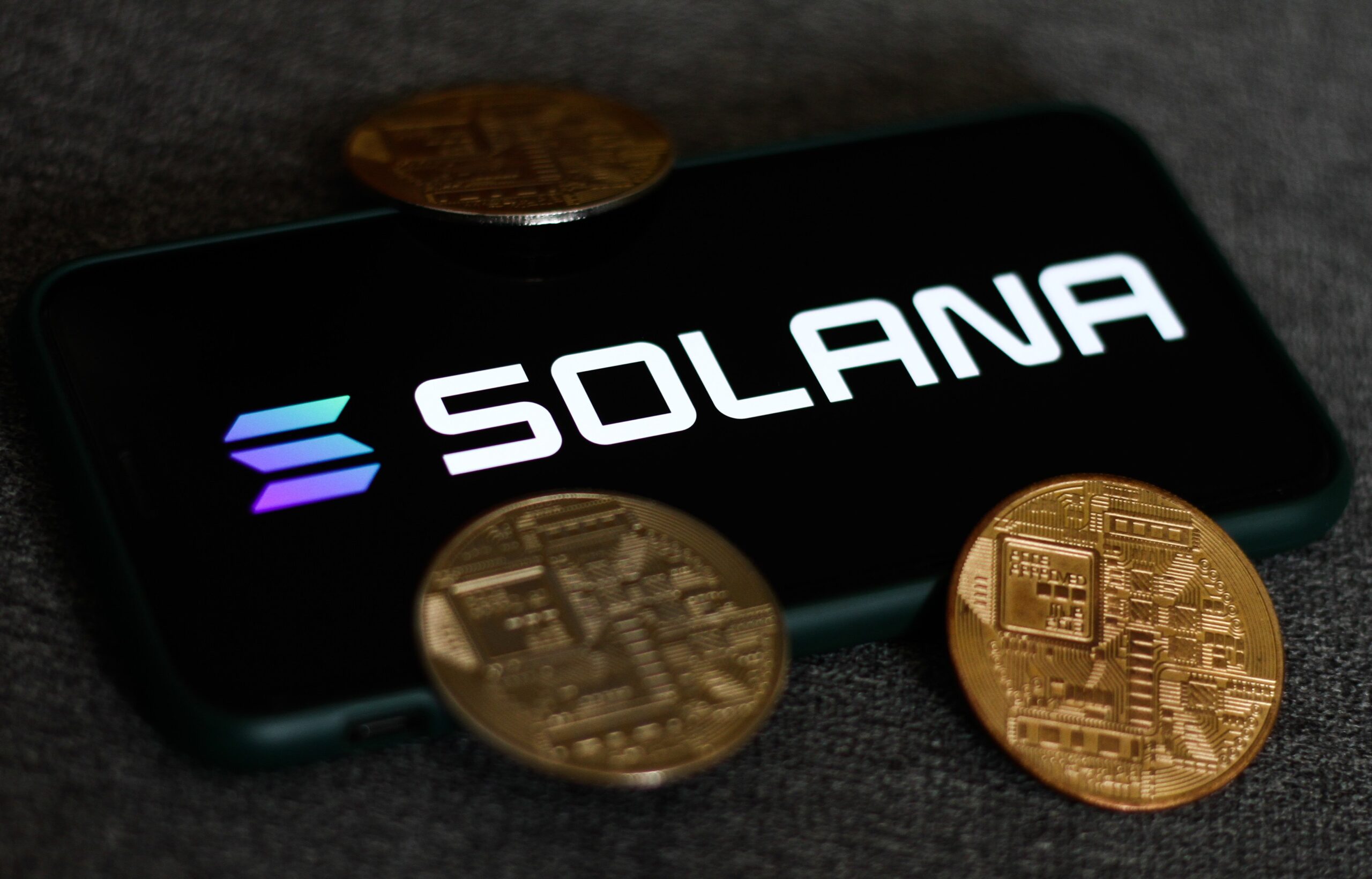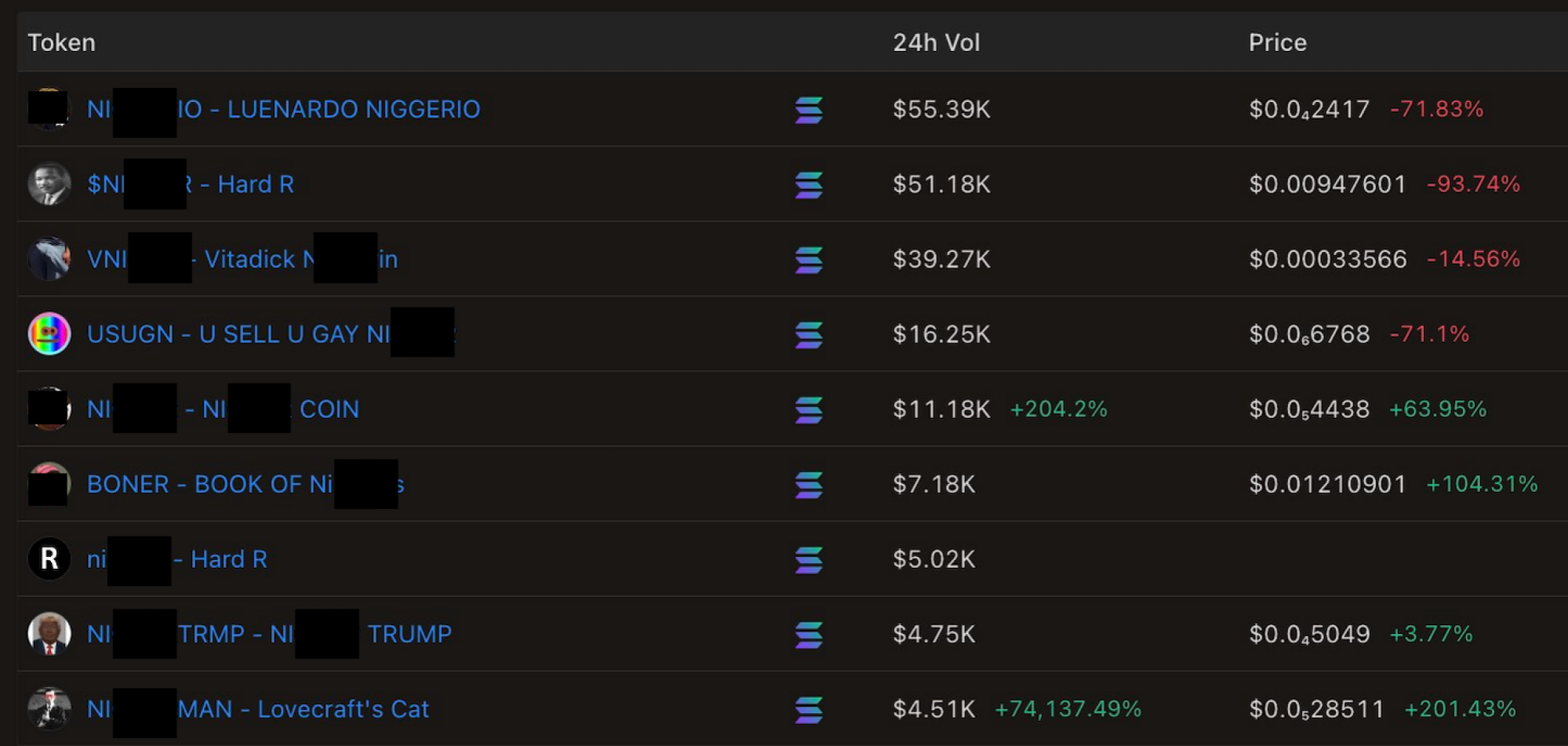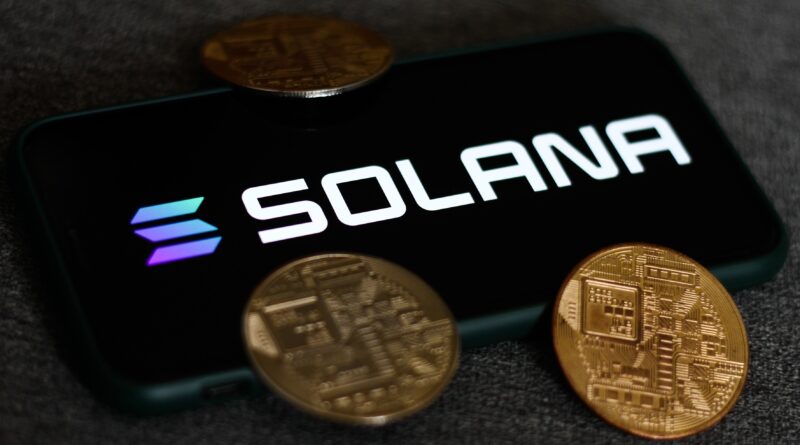Solana blockchain overrun with racist memecoins in latest cryptocurrency trend

By now, you’ve likely heard of Dogecoin, the popular cryptocurrency named after the popular “doge” internet meme. During the last cryptocurrency boom, buoyed by the few successful examples like Dogecoin and the similarly-inspired Shiba Inu coin, memecoins became pretty popular among get-rich-quick scammers looking to make fast money with quick pump-and-dump schemes.
The memecoin craze is now once-again very popular among the cryptocurrency community, especially on the Solana blockchain. But, over the past few days, the memecoins haven’t been based on cute internet animal memes. No, they’ve been named after incredibly racist slurs and concepts.
Among some of the new memecoins you can find on decentralized crypto exchanges now? Numerous cryptocurrencies with the n-word, a token called “Jews did 9/11,” and “NAZI,” which appears on exchanges as just a swastika as its trading symbol.

What’s happening?
Bitcoin’s value rose to a new all-time high this month, soaring past $ 70,000 for the very first time. Many cryptocurrency tokens have also risen in value alongside Bitcoin over the past few weeks, in a minor crypto resurgence the likes of which hasn’t been seen since the market crashed in 2022.
With all of this money moving in the market, some memecoins have also seen a sudden spike in value too, especially those deployed on the Solana blockchain. Solana has raised hundreds of millions in VC funding from firms like Andreessen Horowitz and investors like Kevin Rose. Solana is the network of choice for many of these coins because it’s relatively easy to mint a new token on its blockchain. Solana is also popular among NFT-trading communities for the very same reason.
Late last year, a new memecoin called dogwifhat or WIF was minted on the Solana blockchain based on an internet meme showing – you guessed it – a dog wearing a knit cap. The token slowly spread among the memecoin community, landing at around $ 0.04 shortly after launch. On March 15, dogwifhat hit a high of $ 3.47.
There are a few other similar examples of niche memecoins like dogwifhat making insiders and a few lucky early adopters easy cash in recent months. And, as always, cryptocurrency is rife with people looking to make a quick and easy buck. For a memecoin to take off, however, it needs to go viral. Quite a few memecoin founders decided that creating memecoins named after racial slurs like the n-word and allusions to white supremacist rhetoric was the way to go. This became a trend among certain crypto communities, and more racist memecoins were created.
Then, crypto traders actually started buying and selling these racist memecoins, pushing them up the trending cryptocurrency charts on major crypto listing platforms.
There has been some blowback from the crypto community, with traders sharing their worries on social media platform X about how this will taint Solana for a mainstream audience. However, leaders of the industry haven’t said much or taken any action on the matter.
Anatoly Yakovenko, co-founder of Solana Labs, released a statement on X denouncing those who created the racist and antisemitic memecoins.
“F’ these anti-Semitic racist incels,” Yakovenko posted.
However, it’s unclear if Solana Labs is willing or able to take any action to stop the creation of these tokens.
As previously mentioned, the racist memecoins can also be found on most of the major crypto token listing websites. One entity, the decentralized exchange analytics platform DEX Screener did put out a statement saying that they would be “viewing our token profile moderation policy in the coming days.”
“We won’t be the gatekeepers of what happens on-chain, but we’re definitely not here to spread hate,” DEX Screener said in a post on X.
According to CoinMarketCap, as of publication of this article, the two top trending tokens on the Solana blockchain are “Jews did 9/11” and Adolf Hitler token.
